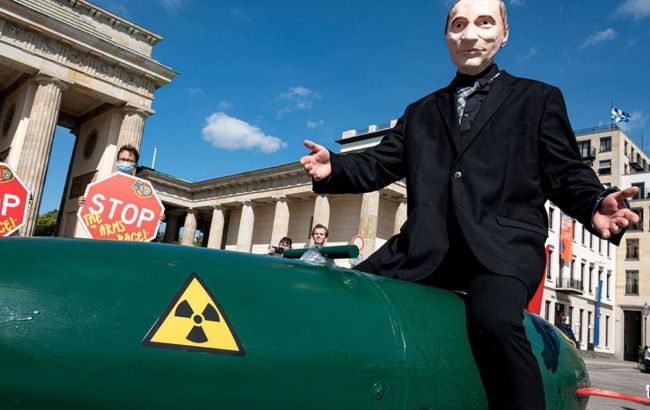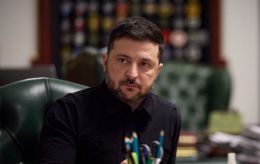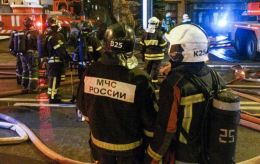West no longer fears Putin's nuclear threats - Time
 The threats of Russian President Putin are not taken seriously (photo: Getty Images)
The threats of Russian President Putin are not taken seriously (photo: Getty Images)
Western leaders have grown increasingly resolute in their support for Ukraine, no longer intimidated by Russia's nuclear threats, reports Time magazine.
Time notes that through escalating nuclear war threats, the Kremlin seeks to deter Western nations from supporting Ukraine, particularly regarding weapons for long-range strikes against targets deep within Russia.
On September 19, the European Parliament passed a resolution calling for the provision of arms to Ukraine and permission for such strikes.
Moscow's response to this document was unusually harsh. Vyacheslav Volodin, speaker of the Russian State Duma, stated on Telegram that this resolution will lead to a world war involving nuclear weapons. He further noted that a single Russian intercontinental ballistic missile could reach Strasbourg, home to the European Parliament, in just three minutes and 20 seconds.
In contrast, European Parliament President Roberta Metsola, in an interview with Time, described Volodin's statement as a typical confrontational reaction. When asked if she took such threats seriously, she added, “If that’s going to be the increasing rhetoric, that’s something we’re going to have to be prepared for.”
Danish Prime Minister Mette Frederiksen remarked that she is unsure whether the rhetoric from Kremlin officials is bluff or genuine. However, she stated, "But my take is that we can never let someone who does not respect democracy, human rights and all the things that we believe in - we cannot let him decide what the rest of us should do."
"The measured response was in line with a growing trend among Western officials. For many of them, Vladimir Putin has begun to sound like the boy who cried nukes too many times, dulling the impact of his own nuclear deterrent and allowing many Europeans to shed their fear of it," Time writes.
According to Frederiksen, "Fear and leadership do not go hand in hand." She added that the West's habit of worrying about Putin's red lines has led to significant delays in supporting Ukraine.
"The only red line I see in this war has already been crossed when they attacked Ukraine," she stated.
Time emphasizes that, while aware of the ignoring of red lines, the Kremlin continues to draw them increasingly. Time recalls that just days after Volodin's threat toward Strasbourg, Putin claimed that Russia should lower the threshold for using nuclear weapons. Putin suggested that in the event of a large-scale attack using conventional weapons like missiles or even drones, Russia could respond with an atomic bomb.
"That formal change in Russia’s nuclear doctrine - which had previously envisioned a nuclear response only in the event of an existential threat to Russia - grabbed headlines and stirred a fresh round of debate in Western capitals. But it did not cause a discernible change in tone from Ukraine or its closest allies," Time states.
Nuclear threats from the Kremlin
Since the onset of the full-scale war, Russian officials have repeatedly stated their readiness to use nuclear weapons against Ukraine and even NATO countries in response to military support for Kyiv. However, such rhetoric has not significantly alarmed Western leaders.
On September 25, Putin proposed changes to the nuclear doctrine, expanding the conditions under which nuclear weapons could be deployed. Under this new approach, aggression against Russia by any non-nuclear state, if conducted with the participation or support of a nuclear state, would be considered a joint attack on the Russian Federation. Additionally, the use of nuclear weapons could be justified in the event of a mass drone or aircraft attack.
The US State Department described Putin's nuclear threats as irresponsible.
For more details on Putin's nuclear threats and Ukraine's response, read the article by RBC-Ukraine.

